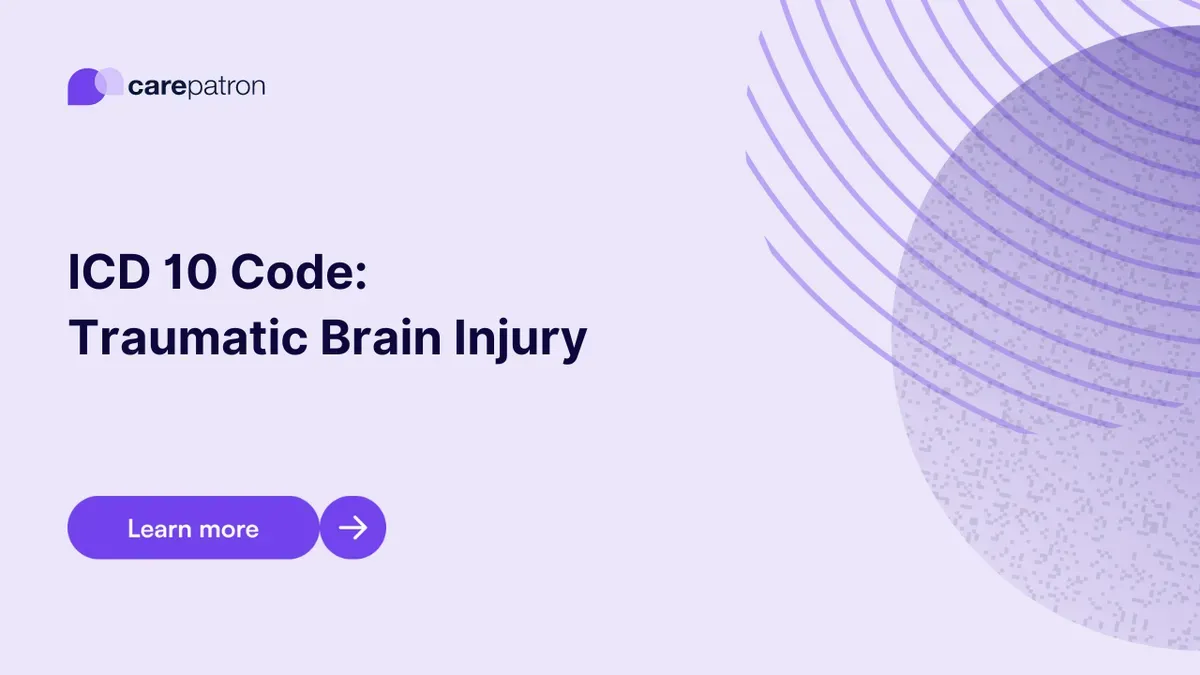
Traumatic Brain Injury ICD-10-CM Codes
Read this short guide and learn about relevant ICD-10 codes for traumatic injury and information to help you with billing and coding.
Use Code
Commonly asked questions
You can use a traumatic brain injury ICD-10 code once you’ve determined the type, the duration of the patient’s loss of consciousness, and the ICD code type specification - initial encounter, subsequent encounter, and sequela - with observation, tests, and analysis.
Only the more specific traumatic brain injury ICD-10 codes with the duration of the patient’s loss of consciousness and ICD code type are billable.
Common treatments for traumatic brain injuries are surgery, medication, and rehabilitation.
EHR and practice management software
Get started for free
*No credit card required
Free
$0/usd
Unlimited clients
Telehealth
1GB of storage
Client portal text
Automated billing and online payments
